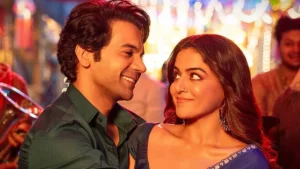
“In matters of conscience, the law of the majority has no place,” appears a Mahatma Gandhi quote at the interval block of Dijo Jose Antony’s vigilante drama Jana Gana Mana. Inside the witness box is an honest cop Sajjan Kumar (Suraj Venjaramood). He is about to be drilled for the encounter killings of four accused in a sensational murder case of Prof. Sabha Maryam (Mamtha Mohandas). The mysterious opposition lawyer – who walks with a limp and spouts punchlines like a volley of bullets – is Aravind Swaminathan (Prithviraj Sukumaran). For a film that one believes is a Prithviraj showreel introduces him right then – at the interval point.
Jana Gana Mana, which runs for close to 3 hours, carries a procedural tone in the first two acts. It’s a system versus common man altercation set amid Sabha’s death. A former professor at an influential campus in Bengaluru, she was burnt to death by four men on the outskirts of a highway. The politics in Antony’s film is a brave and stark criticism of the undemocratic practices the nation has been witnessing of late. It’s also timely that the story is set in Karnataka and the female protagonist (Sabha) is a Muslim woman who freely exercises her sartorial choices. The chief villain is the home minister of the state surrounded by saffron-clad ‘devotees’ who are brainwashed and are willing to brainwash gullible youth. As the man and a bunch of other characters repeatedly echo, it is the power that the system staunchly protects – even at the cost of umpteen lives.
With the first half unfolding through the professional and personal dilemmas of an honest police officer’s attempts to nab the culprits, the film is layered with accents of student politics. The message that youngsters ought to step out of the galleries and go work at the grass-root level is made loud and clear in Jana Gana Mana. With the professor’s murder inspiring the hot-blooded youth to take to the streets, the mood the film sets in is volatile and intriguing. The premise is nothing unseen but the air of suspense until the midpoint is what keeps us away from the watch until the midpoint.
Enter Aravind – an unknown entity so far – the film turns into never-ending drivel of nonstop dialogue staged inside a courtroom. While the trajectory it designs tries to lead us to a noble message, the execution and the writing exceedingly lack nuances. Aravind’s arguments frequently contain the tone of ‘whataboutery’ and are often insensitive, especially towards female victims. The unfortunate side of using speech as a narrative device is not just the monotony, but also its tendency to complicate the main plot with gazillion subplots. By the time, Jana Gana Mana reaches its final act, Antony has transformed the film into mega chaos. With one twist looming over another, the final 20 minutes of the film would give an orgasm to those who grew up on a diet of Bollywood’s Abbas-Mustan genre.
ALSO READ: ‘Bro Daddy’ review – Mohanlal shines in Prithviraj’s glossy family comedy
The saving grace in the long, patchy film (predictably) is its intent. Jana Gana Mana wants to make a brave statement on the politics of hate. The dialogues, particularly those in English, have their share of merits. Then again, all that the film does is talk. The good people talk, yell, suffer, brood, and die. The bad ones talk, laugh, smoke, scoff, and die. Among the actors, Suraj Venjaramoodu puts in a clean show – nuanced and powerful from start to end – even when the camera ignores him throughout the third act. Sajjan Kumar has been shown in as human light as possible. One thing I couldn’t relate to is the forced family angle. Every other actor – be it the reliable Prithviraj or Mamtha – perform solely to the frontbenchers. The decibel levels are decidedly scaled up and the only one who doesn’t entirely jar is Shammi Thilakan as the prosecution lawyer. It was pleasant to see the ‘80s starlet Shari making a brief return but the impact isn’t as thunderous as her contemporary Jalaja’s in Malik – for which I would put the blame entirely on the one-note screenplay.
Dijo Jose Antony also seems to be fond of using songs as a storytelling device – complete with melody and lyrics. The hiccups are when these tuneful, conventional numbers erupt right in the middle of tense moments, refusing to sync with the film’s otherwise grim, no-nonsense tone. For sure, Jana Gana Mana is no Nayattu in being procedural, but it also isn’t a thriller with scope to all-out musical like Joseph. The editor (Sreejith Sarang) appears to have way too much to lay his hands on. The result is an incoherent mishmash that neither does justice to the film’s politics nor to its intent to become an absolute crowdpleaser. Dijo Jose Antony’s film which begins rather well ends up as loud, broad-stroked hokum despite its heart rightly in place. The nation, for sure, deserves liberal filmmakers like Prithviraj and Antony who understand the constructs of democracy. If only the cinema matches their mettle as people.
Rating: ★★ 1/2

